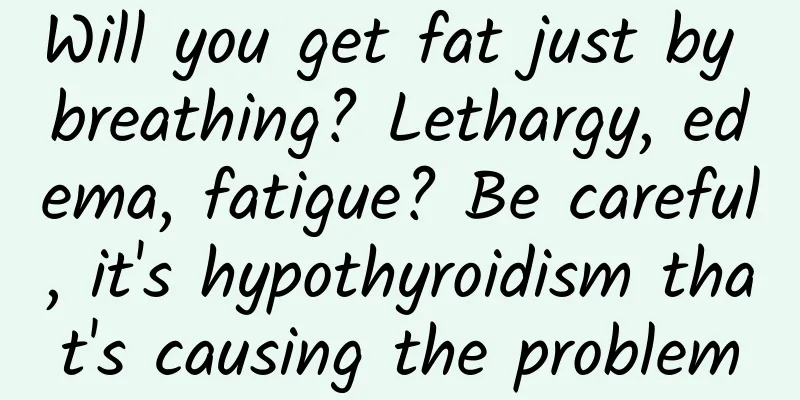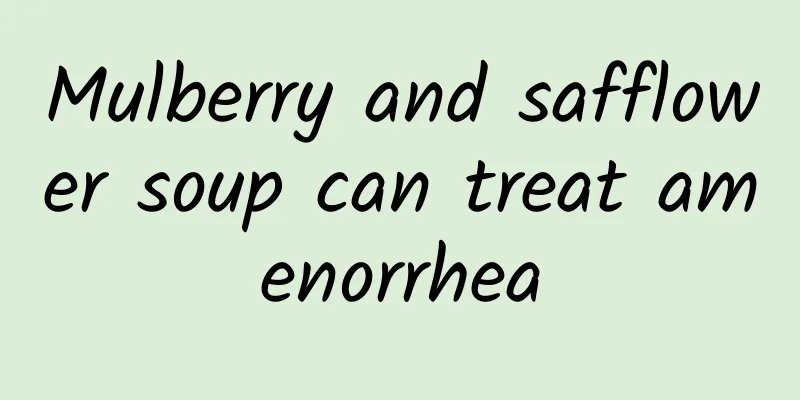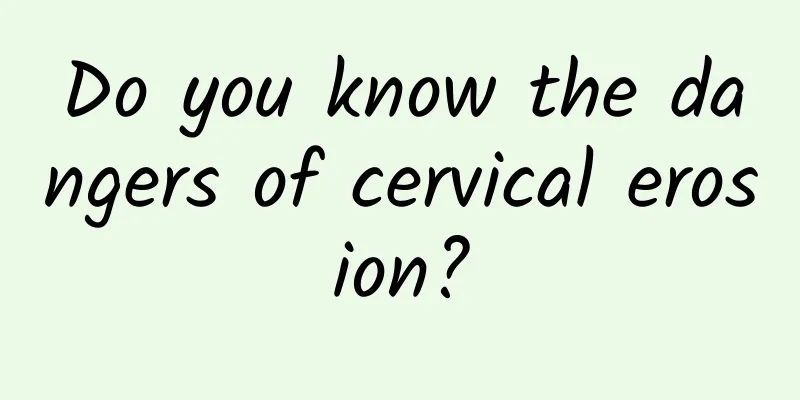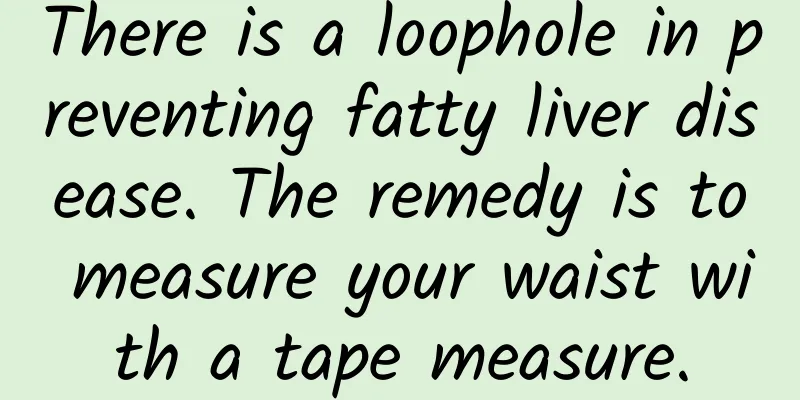Will you get fat just by breathing? Lethargy, edema, fatigue? Be careful, it's hypothyroidism that's causing the problem

|
"Doctor! It seems like I gain weight even just by breathing. I don't eat much, but my body is getting wider day by day?", "I feel so tired and listless every day, and my whole body is swollen. I almost can't stand the cold weather. What should I do?" Chinese medicine practitioner Lai Ruixin said that the above problems are actually typical symptoms experienced by patients with hypothyroidism, and the first step to improve these problems is to regulate the disordered immune system. Unexplained weight gain, edema, fatigue? It turns out that hypothyroidism is the cause of the slow metabolism What exactly is hypothyroidism? Traditional Chinese Medicine Practitioner Lai Ruixin said that hypothyroidism may be caused by congenital thyroid deficiency, thyroid inflammation, or immune disorder, which results in the thyroid gland being unable to produce sufficient thyroid hormones to meet the body's needs, causing the systemic metabolism to slow down, and causing patients to experience many discomforts. It is an autoimmune disease. And because women are a high-risk group for autoimmune diseases, according to clinical statistics, the majority of patients with hypothyroidism are women. Because patients with hypothyroidism have a slower systemic metabolism, once they become ill, the most common symptoms are edema, unexplained weight gain, extreme fear of cold in winter, drowsiness, and abnormally cold hands and feet when a cold wave comes. It is also worth noting that if the problem of hypothyroidism persists for a long time and is not improved appropriately, it may slow down people's reactions, significantly reduce their memory, and lower their IQ. If this happens to the elders, it is more likely to lead to inattention and deterioration of various body functions, greatly increasing the risk of dementia in the future, so be more careful. Hypothyroidism may be caused by congenital thyroid deficiency, thyroid inflammation, or immune disorder, which results in the thyroid gland being unable to produce sufficient thyroid hormones to meet the body's needs, causing the body's metabolic rate to slow down, and causing patients to experience many discomforts. It is an autoimmune disease. Traditional Chinese medicine talks about hypothyroidism, Qi deficiency, and dampness constitution. Do this to regulate immunity and improve physiological functions. As for how traditional Chinese medicine views the problem of hypothyroidism? TCM physician Lai Ruixin pointed out that from the perspective of TCM, the constitution of patients with hypothyroidism is mostly characterized by qi deficiency and dampness. Qi deficiency means that the body lacks kinetic energy, and water and dampness mean that the body is prone to accumulate residual pathological products, which in turn affects its own immune function. The strength of traditional Chinese medicine lies in immune regulation. Commonly used prescriptions in traditional Chinese medicine, such as Shenfu Decoction, Sini Decoction combined with Guizhi Gancao Decoction, can effectively regulate qi deficiency problems and promote metabolism and circulation. If the dampness cannot be transformed, you can use prescriptions such as Zhenwu Decoction, Wuling Powder, Ling Gui Shu Gan Decoction, etc. Through warm medicines, sufficient energy circulation can be provided. After the circulation is smooth, the residual pathological products in the body can also be slowly metabolized, reducing edema and weight gain. In addition, since hypothyroidism is related to the body's metabolism, warming tonics that have the effects of warming the yang and replenishing qi, as well as tonifying the spleen and kidney, are often used clinically to nourish the kidney and replenish essence. Commonly used medicines include raw rehmannia, polygonatum, cistanche, and dodder seed. Many patients with hypothyroidism can be well controlled if their lifestyle is improved. Low thyroid causes cold hands and feet, and weakness in limbs? A bowl of chicken soup to promote blood circulation Traditional Chinese Medicine Practitioner Lai Ruixin also mentioned that there are many Chinese medicinal materials in clinical Chinese medicine that can promote blood circulation and are helpful in improving the symptoms of chills caused by hypothyroidism, such as dried ginger, jujube, angelica, Sichuan pepper, garlic, ginseng, wolfberry, etc. Chinese medicine practitioner Lai Ruixin has also designed a simple Chinese herbal medicine diet recipe specifically for those who suffer from hypothyroidism, and provides it to the public as a reference for daily maintenance. Moderate drinking can help replenish qi, nourish blood, and improve the problem of cold hands and feet. The ingredients of "Ten-Ingredient Tonic Chicken Soup" include 1 chicken, 10 grams of Codonopsis pilosula, 15 grams of Atractylodes macrocephala, 5 grams of roasted licorice, 10 grams of Angelica sinensis, 6 grams of Chuanxiong, 15 grams of Rehmannia glutinosa, 15 grams of White Peony Root, 10 grams of Astragalus membranaceus, and 2 grams of cinnamon. ★Ten-in-one chicken soup Ingredients: 1 chicken, 10 grams of Codonopsis pilosula, 15 grams of Atractylodes macrocephala, 5 grams of roasted licorice, 10 grams of Angelica sinensis, 6 grams of Chuanxiong, 15 grams of Rehmannia glutinosa, 15 grams of White Peony Root, 10 grams of Astragalus, 2 grams of cinnamon, and 1 small cotton bag. practice: 1. Cut the chicken into pieces and blanch it in hot water to remove the blood and impurities. Then take it out and put it into the inner pot of the rice cooker. 2. Rinse the herbs with water, put them into a cotton bag, tie it up, put it into the inner pot of the rice cooker, and add water to cover the chicken and herbs. 3. Then put the inner pot into the rice cooker, add half a cup to one cup of water to the outer pot, and when the switch pops up, you can eat. Function: Shiquan Dabu Soup can nourish blood and replenish Qi. It is suitable for patients with hypothyroidism who have shortness of breath, laziness, weakness in limbs, dizziness, cold hands and feet. However, it should be noted that it should be stopped if you have a cold. Should people with hypothyroidism eat more iodine-containing foods? Be careful if you don't understand it clearly, you may have big problems when eating In addition to explaining the treatment direction of traditional Chinese medicine, Dr. Lai Ruixin also mentioned that in clinical practice, he has encountered many patients with hypothyroidism who asked, since hypothyroidism is caused by a lack of thyroid hormone, can eating more iodine-rich foods such as seaweed and kelp help improve hypothyroidism? It is explained that this treatment may be effective for patients with iodine-deficient hypothyroidism. However, in reality, with the implementation of the public health policy of iodizing salt, such patients have become quite rare. Patients with hypothyroidism caused by Hashimoto's thyroiditis should try to avoid eating foods high in iodine, such as seaweed, kelp, scallops, marine fish, shrimps and crabs, as these foods may stimulate the body's autoimmunity and cause or aggravate the possibility of hyperthyroidism or hypothyroidism, which is harmful to the patient. However, if it is an autoimmune disease, for example, patients with hypothyroidism caused by Hashimoto's thyroiditis, eating foods high in iodine such as seaweed, kelp, scallops, saltwater fish, shrimps and crabs will stimulate the body's autoimmunity and may cause or aggravate hyper or hypothyroidism, which is harmful to the patient and should be eaten as little as possible. In addition, patients with hypothyroidism should also avoid excessive intake of cruciferous vegetables, such as kale, lettuce, broccoli, cabbage, Chinese cabbage, radish, etc. These vegetables may affect iodine utilization and affect the production of thyroid hormone. 【Tip from Chinese medicine practitioners】: Finally, Chinese medicine practitioner Lai Ruixin also reminded that stress, mood swings and staying up late are also potential possible causes of more severe symptoms of hypothyroidism. Therefore, if patients want to improve the problem of hypothyroidism, it is best to develop regular living habits, go to bed early and get up early, do not stay up late, avoid long-term stress accumulation, and learn how to control emotions, which is the key to preventing the disease from getting out of control. In addition, it should be noted that forgetfulness and difficulty concentrating are also typical symptoms of hypothyroidism. Therefore, for safety reasons, patients are advised to avoid situations that require concentration, such as operating heavy machinery or driving a vehicle. In addition, some patients may want to drink coffee to refresh themselves. Although caffeine is unlikely to affect the condition, for the sake of their own health, actively seeking professional medical help to clarify their physical constitution and regulate their symptoms would be a better treatment option. |
<<: Practice like this like the fairy supermodel! 9 ways to get a flat belly and firm butt at home
Recommend
Body Sculpting Tutorial - Slimming Arms and Triceps Stretch
The hot summer is here, and many girls have throw...
Experts explain the precautions for ectopic pregnancy that need to be watched out for
There are some precautions that patients with ect...
The treatment focus of acute and chronic adnexitis is different
Adnexitis is a common gynecological disease, whic...
Pathological pelvic effusion
What is pathological pelvic effusion? Pathologica...
What are the obvious symptoms of ovarian cysts?
During a gynecological examination, many people w...
Do you know what causes irregular menstruation?
Do you know what causes irregular menstruation? W...
Is it easy to get pregnant with cervicitis and endometritis?
Both cervicitis and endometritis may affect pregn...
What are the steps of Chinese medicine treatment of ovarian cysts
Ovarian cyst is a gynecological disease that brin...
What are the symptoms of cervical erosion? What are the specific symptoms of cervical erosion?
When women suffer from some gynecological disease...
How to prevent acute adnexitis?
What is needed to prevent acute adnexitis? This i...
What is the best way to treat female cervical erosion? Analysis of the classification and treatment of female cervical erosion
Married women have many gynecological diseases, w...
How to perform abortion surgery for scar pregnancy? This article will show you how
Scar pregnancy abortion surgery also needs to be ...
What can I eat after radiotherapy for uterine fibroids? What does radiotherapy for uterine fibroids mean?
What can I eat after radiotherapy for uterine fib...
When is the menstrual period calculated after medical abortion?
When is the menstrual period calculated after med...
Several commonly used methods for treating ovarian cysts
At present, there are three main methods commonly...









